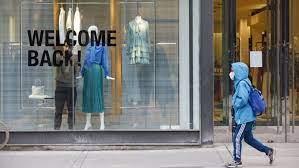Online shopping sales slumped to their lowest levels since before the pandemic, as consumers rein in discretionary spending. This is despite wages rising faster than prices and inflation. Sales Slump to Lowest Levels Since Before Pandemic.
Customers are choosing to shop with large retailers who can efficiently work around the shipping and inventory shortages. Among them are Target, Nordstrom Rack and the like.

1. Limeroad
Founded in 2012, Limeroad is India’s leading discovery platform for lifestyle products. The company offers a curated and refined assortment of “Made in India” products, encouraging indigenous vendors to participate in the marketplace.
The company also allows users to create a ‘look’ or scrapbook and earn money for it by sharing it with friends and family. This social aspect of the site helps increase customer engagement and product discovery.
The company’s business model is capital efficient. They do not commit working capital to hold inventory and only make money when the product sells. This keeps their operating expenses low.
2. Old Navy
Old Navy is a retail darling that has proven that Americans love trendy yet inexpensive clothing. Its sales at stores open a year show that the chain is still thriving despite the pandemic and a slowdown at its parent company Gap Inc. (GPS).
The brand’s stylish clothes are gaining popularity thanks to TikTokers doing try-on hauls and sharing dupes, which drives online sales. It also has a wide range of casual wear that appeals to women, men and kids.
However, Old Navy’s success has hurt Gap in a big way. Its revenue is down largely due to mandated store closures internationally and the stay-at-home restrictions during the pandemic.
3. Zulily
Zulily sells clothing, shoes, toys and home products, including brands like Dooney & Bourke, Le Creuset and Martha Stewart. The company doesn’t hold inventory, but rather consolidates shipments from product companies and then ships them directly to customers.
This model is popular, but it can be problematic when shipping times drag on. And that’s what consumers are complaining about with Zulily, according to ConsumerAffairs reviews. Zulily’s parent company, Qurate Retail Group, slashed promotions early in 2020 as factories in China shut down and deliveries slowed. It has since reported a decline in sales. Customers can return items for store credit within 30 days.
4. Lands’ End
The apparel company saw a sharp drop in global ecommerce sales this quarter, and revised its full-year outlook. It blamed the macro economic environment and inflationary pressures on consumers.
In the past, the company has leaned heavily on its online platform to drive growth. But it has to keep a sharp eye on pricing as the market returns to normal levels of inflation.
Lands’ End also sells uniforms and personalized apparel to business customers through its Outfitters brand. The company’s B2B ecommerce business reported demand from travel-related national accounts and school uniform households returning to historical buying patterns. Lands’ End did not break out those sales in its overall fiscal 2022 net revenue results.
5. Nordstrom Rack
Nordstrom Rack, the off-price subsidiary of Nordstrom, saw sales fall during the holiday season.
The retailer cited lower discretionary spending and said it prioritized right-sizing inventory, even when that meant deeper markdowns. The company’s full-line sales fell 3.5%, while Nordstrom Rack saw its sales decline 7.6%.
Nordstrom Rack, which opened in 1973, is famous for offering discounts on designer and branded products. The store works as a clearance center and offers 30%-70% off on previous seasons’ items. It has more than 250 locations.
6. Target
As the COVID-19 pandemic wore on, shoppers shifted spending from discretionary items like electronics and toys to food, house essentials and travel. The Minneapolis-based discounter, which focused on convenience and grocery delivery during the pandemic, became a big winner among retailers, beating its rivals in sales and profit.
However, that momentum may have run its course. Inflation is squeezeing household budgets, leaving less wiggle room for things like a new flat screen or kitchen appliance.
To counter this trend, Target is dangling convenient perks, including curbside returns, in the hope of inspiring shoppers to visit stores again. The service is now available at roughly a quarter of stores nationwide needs read more hear.


















